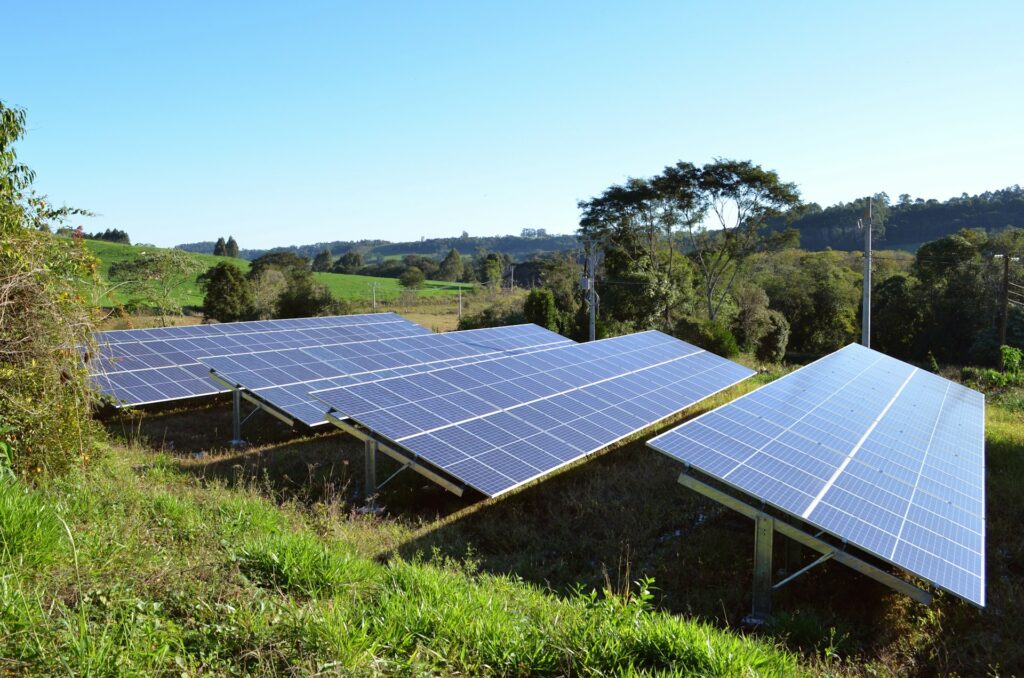Revolutionizing Sustainability: How Innovative Tech Transforms Developing Nations
In a world facing climate change and resource depletion, sustainable technology in developing countries is no longer a luxury—it’s a necessity. From solar power in rural areas to tech for water purification, groundbreaking innovations are empowering communities, fostering eco-conscious growth, and proving that sustainability and progress can coexist. For globally-minded individuals passionate about environmental consciousness and intentional living, these advancements offer hope and actionable inspiration. This article explores how innovative technology for sustainability is reshaping developing nations, with real-world examples, current data, and practical insights.
Why Sustainable Technology Matters in Developing Countries
Developing nations often bear the brunt of climate change despite contributing the least to global emissions. According to the United Nations, low-income countries face $70-100 billion annually in climate-related damages. Yet, limited resources and infrastructure pose challenges. Green technology in poor countries bridges this gap, offering scalable, cost-effective solutions that align with wellness, minimalism, and environmental values.
Sustainable development technology not only reduces environmental impact but also uplifts communities by improving access to clean energy, water, and food security. For college-educated professionals aged 25-45, these innovations resonate with a desire for authenticity and holistic health, blending personal development with global impact.
The Impact of Eco-Friendly Innovations
- Economic Growth: Affordable renewable energy creates jobs in installation and maintenance, boosting local economies.
- Health Benefits: Tech for water purification reduces waterborne diseases, enhancing community wellness.
- Environmental Protection: Waste management tech minimizes landfill use, preserving ecosystems.
Top Innovative Technologies Driving Sustainability
From low-cost green technologies to climate tech for low-income regions, here are the most impactful innovations transforming developing countries.
1. Solar Power for Rural Communities
Solar power in rural areas is a game-changer for off-grid communities. In 2024, the International Energy Agency reported that solar energy capacity in developing nations grew by 25%, driven by low-cost solar solutions for remote villages. Solar panels provide reliable electricity for homes, schools, and health clinics, reducing reliance on kerosene, which contributes to indoor air pollution.
Example: In Kenya, M-KOPA Solar offers pay-as-you-go solar systems, empowering over 1 million households with clean energy. This off-grid technology supports education and economic opportunities while cutting carbon emissions.
Quote: “Solar energy is not just about power; it’s about empowering communities to thrive sustainably,” says May Sengendo, a Ugandan renewable energy advocate.
2. Water Purification Technologies
Access to clean water remains a challenge in many developing nations. Tech for water purification, such as solar-powered filtration systems, is revolutionizing water access. A 2025 UNICEF report highlights that 2.2 billion people lack safe drinking water, with Africa and Asia being the most affected.
Example: Examples of tech improving water access in Africa include the LifeStraw Community purifier, which filters 99.99% of bacteria and parasites, serving up to 100 people daily in rural Ethiopia. These eco-friendly innovations for the third world promote wellness and reduce disease.
3. Sustainable Agriculture Innovations
Sustainable agriculture technology enhances food security while minimizing environmental impact. Precision farming, using drones and IoT sensors, optimizes water and fertilizer use. In Southeast Asia, sustainable farming innovations in Southeast Asia are boosting crop yields by 20%, per a 2024 FAO study.
Example: In Vietnam, Farmer Connect uses mobile apps to provide real-time weather and soil data, helping farmers reduce pesticide use and improve harvests. How mobile tech supports eco-development is evident in these digital tools, fostering resilience and sustainability.
4. Waste Management Solutions
Waste management tech addresses the growing waste crisis in urban slums. Affordable waste recycling technology for slums converts organic waste into biogas or compost, reducing landfill use. The Ellen MacArthur Foundation estimates that circular economy models could cut greenhouse gas emissions by 45% by 2050.
Example: In India, Saahas Zero Waste transforms urban waste into biogas, powering local communities. This environmental tech in Asia promotes a circular economy, aligning with minimalist and sustainable living principles.
5. Digital Tools for Climate Resilience
Digital tools for climate resilience in developing nations empower communities to adapt to climate change. Mobile apps and AI-driven platforms provide early warnings for floods or droughts. A 2024 World Bank study notes that digital tools have reduced climate-related losses by 30% in vulnerable regions.
Example: In Bangladesh, the Flood Early Warning System app alerts farmers to impending floods, saving crops and livelihoods. These tools showcase how technology supports sustainability in rural areas, blending innovation with environmental consciousness.
Challenges and Opportunities
While innovative green technologies helping developing countries offer immense potential, challenges remain:
- High Initial Costs: Low-cost green technologies require upfront investment, which can be prohibitive. However, pay-as-you-go models are making solutions accessible.
- Infrastructure Gaps: Rural areas often lack technical expertise or grid connectivity. Training programs and off-grid technology are bridging this gap.
- Policy Support: Governments must incentivize best renewable energy tech for poor countries through subsidies and partnerships.
Opportunities abound for globally-minded individuals to support these initiatives. Engaging with local NGOs, advocating for green policies, or investing in sustainable startups can amplify impact.
How You Can Support Sustainable Technology
As environmentally conscious individuals, you can drive change by embracing sustainable choices:
- Support Green Startups: Invest in or donate to organizations promoting clean energy solutions in developing nations.
- Advocate for Policy Change: Push for subsidies that make affordable renewable energy accessible to low-income communities.
- Adopt Minimalist Practices: Reduce personal waste and energy use, aligning with the ethos of eco-friendly innovations for the third world.
- Share Knowledge: Educate others about how developing nations use tech for sustainability, inspiring collective action.
Call-to-Action: Join the movement for a greener future. Explore sustainable initiatives in your community, support eco-friendly brands, or volunteer with organizations advancing climate tech for low-income regions. Every step counts!
Conclusion: A Sustainable Future for All
Sustainable technology in developing countries is reshaping lives, from solar power in rural areas to digital tools for climate resilience. These innovations align with the values of sustainability, wellness, and personal development, offering a blueprint for a healthier planet. By supporting innovative technology for sustainability, we can empower communities, protect ecosystems, and create a future where progress doesn’t come at the expense of the environment.

